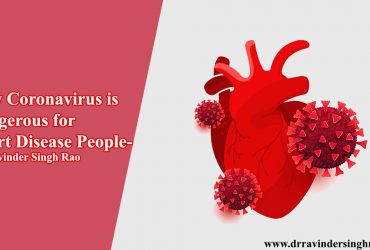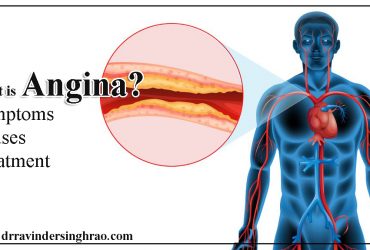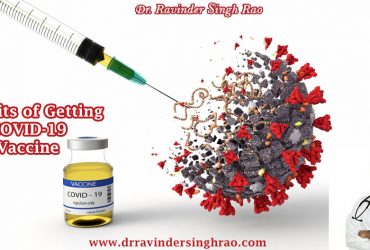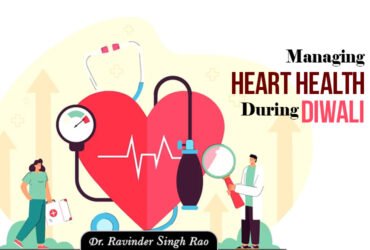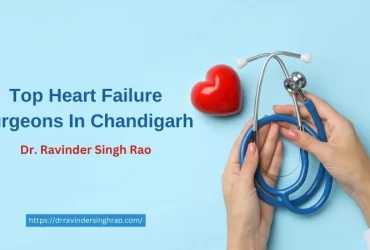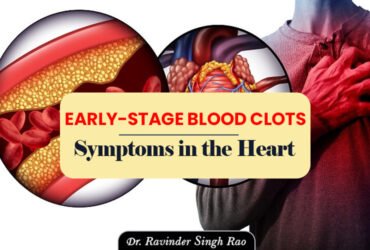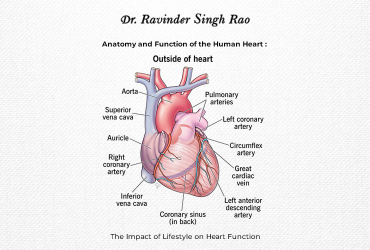Our physical well-being is being negatively impacted by irregular sleep patterns, bad eating habits, and a demanding work environment, with the heart appearing to be the most affected. The World Health Organization reports that heart disease is the leading cause of death globally. One-fifth of all cardiovascular disease-related deaths worldwide, including those from coronary heart disease, peripheral arterial disease, cerebrovascular illness, congenital heart disease, deep vein thrombosis, and rheumatic heart disease, occur in India. A healthy food plan has a big part to play in taking care of your health, which is more important than ever. By increasing knowledge and addressing behavioral risk factors such as obesity, bad food, alcohol and tobacco intake, and physical inactivity, the rising prevalence of cardiac illnesses can be averted.
Dr. Ravinder Singh Rao, a renowned expert in cardiology, emphasizes the critical role of a heart-healthy diet in maintaining optimal cardiovascular health. He recommends including a range of foods high in nutrients in your daily meals to help heart health and stave off disease. As a good source of vitamins, minerals, and antioxidants, Dr. Ravinder Singh Rao advises consuming a lot of fruits and vegetables, whole grains, and lean proteins.
Reducing the intake of saturated fats, excessive sodium, and trans fats is also crucial for lowering blood pressure and cholesterol levels. People can effectively control their heart health and lower their risk of cardiovascular problems by implementing certain dietary recommendations, which will ensure a longer and healthier life.
Heart Doctor, TAVI Surgery, TAVI Procedure, Best Cardiologist, TAVI Cardiologist In India, TAVR Cardiologist in India
Importance of a Healthy Diet for Heart Patients
You could be considering ways to strengthen your heart. The proposal is not too difficult to carry out. You need to know what to avoid if you have heart health issues before you know what to do. These include:
- It is necessary to stay away from trans fat, hydrogenated fats, and full-fat dairy products like butter and cheese since they may raise LDL cholesterol levels, which raises the risk of cardiovascular illnesses.
- It’s also advised that people with heart conditions avoid eating baked products.
- You should also minimize or stay away from processed foods, red meat, fizzy drinks, deep-fried foods, refined carbs, sweets, and desserts.
- It is recommended that heart patients stay away from heavy foods like beans and broccoli since they make the heart work harder and cause more gas.
What are the Heart Healthy Foods?
There are some foods that can help strengthen your heart. Think about consuming these heart-healthy foods:
- Nuts.
- Whole Grains.
- Pulses.
- Soy Protein.
- Seeds such as flax and fenugreek seeds.
- Whole Fruits.
- Green Tea.
- Low-fat dairy products such as milk and yogurt.
- Lean meats, chicken, fish eggs,
- High-fiber grains like quinoa, brown rice, oats, fibrous fruits, and millet.
- Green leafy vegetables.
Low-fat and lean meats Dairy products can make up 15% to 20% of a heart patient’s protein consumption. Portion control is another crucial aspect. Consuming small amounts of food throughout the day as opposed to filling three-course meals facilitates better digestion and reduces cardiac strain.
Tips to Keep Your Heart Hale & Hearty
Here are some pointers that will help you understand the concept if you’re unsure about what constitutes a healthy diet or how to follow diet plans.
1. Choose Fruits and Vegetables Over Junks
Consuming an increased amount of fruits and vegetables is beneficial to heart health because they are high in fiber, which lowers harmful cholesterol and delivers heart-protecting elements. These foods contribute to feeling full, which reduces the amount of food you eat. It facilitates the passage of fat through the digestive tract as well. Vegetables can be included in salads and soups to add variety to your meals.
- Tip: Instead of reaching for a packaged snack the next time, try an apple, a banana, or any other seasonal fruit.
2. Stay Hydrated
When you drink enough water, your heart pumps blood to your muscles more easily. It also enables the muscles to work smoothly. Dehydration can lead to major health issues like headaches and swollen feet, which can result in heart attacks.
- Tip: Make sure you have a bottle of water on hand. To help you remember to have a glass of water every hour, set frequent alerts on your phone.
3. Eliminate Trans-Fat from the Diet
Trans-fats are mostly found in food items such as pizzas, fried food, and snacks. Consuming trans fat lowers the amount of HDL (high-density lipoproteins), which might increase plaque in blood vessel walls and eventually lead to cardiovascular illnesses. In the worst situation, this might possibly result in death.
- Tip: To resist the urge to order takeout, plan and prepare your meals ahead of time.
4. Eat Meals at Regular Intervals
Eating at regular intervals enhances fat burning and helps regulate cholesterol and blood sugar. Moderation in eating is just as vital. Eating a lot of meals high in nutrients will help you manage your weight and heart health.
- Tip: Make a diet plan for yourself (use the internet for assistance to save money). Adhere strictly to the diet plan.
FAQs
What are the key components of a heart-healthy diet?
A varied diet rich in fruits, vegetables, whole grains, lean meats, and healthy fats is part of a heart-healthy diet. It places a focus on raising fiber and omega-3 fatty acids and decreasing trans fats, saturated fats, and excessive sodium consumption.
How can I reduce my intake of unhealthy fats?
Use avocado or olive oil when cooking instead of butter or lard to cut down on bad fats. Select lean meats and skinless chicken, and increase the amount of plant-based proteins in your diet by including lentils and beans. Avoid processed foods high in trans fats and read nutrition labels carefully.
Are there specific fruits and vegetables that are best for heart health?
Vegetables and fruits high in potassium, fiber, and antioxidants are especially good for heart health. Berries, apples, oranges, bell peppers, carrots, and leafy greens (kale and spinach) are a few examples. These meals promote healthy cardiovascular function and help lower inflammation.
How does reducing sodium intake benefit heart health?
Cutting back on sodium helps lower blood pressure, which lowers the risk of stroke and heart disease. Reduce the amount of sodium in your diet by limiting processed and canned foods, using fresh ingredients whenever possible, and avoiding adding extra salt to your meals.
Can a heart-healthy diet plan manage high blood pressure?
Yes, a heart-healthy diet can significantly help manage high blood pressure. Foods high in fiber, potassium, and magnesium can help control blood pressure. Better blood pressure regulation can be achieved by consuming more fruits, vegetables, and whole grains, and reducing sodium intake.


